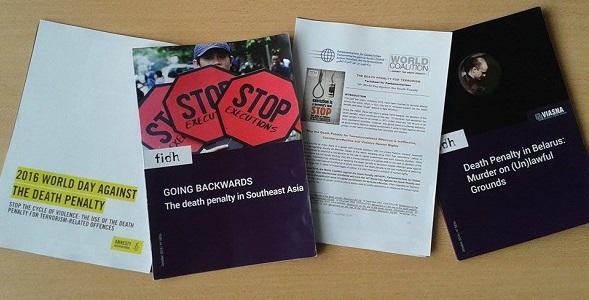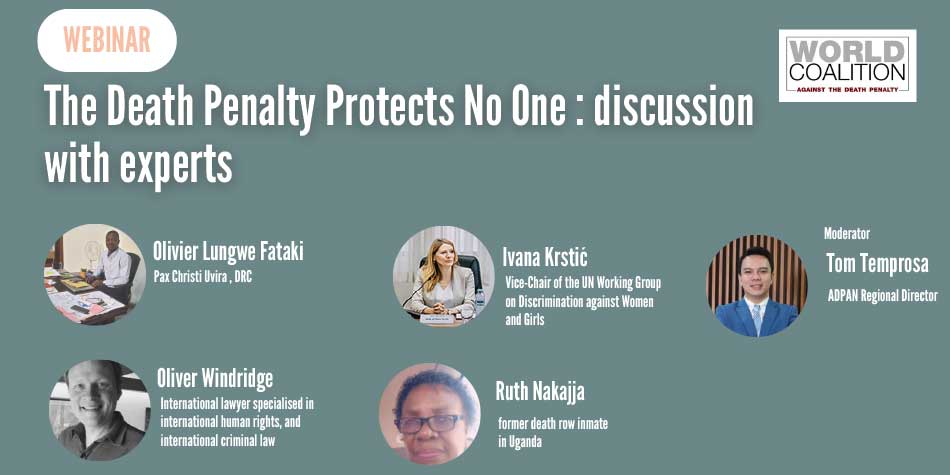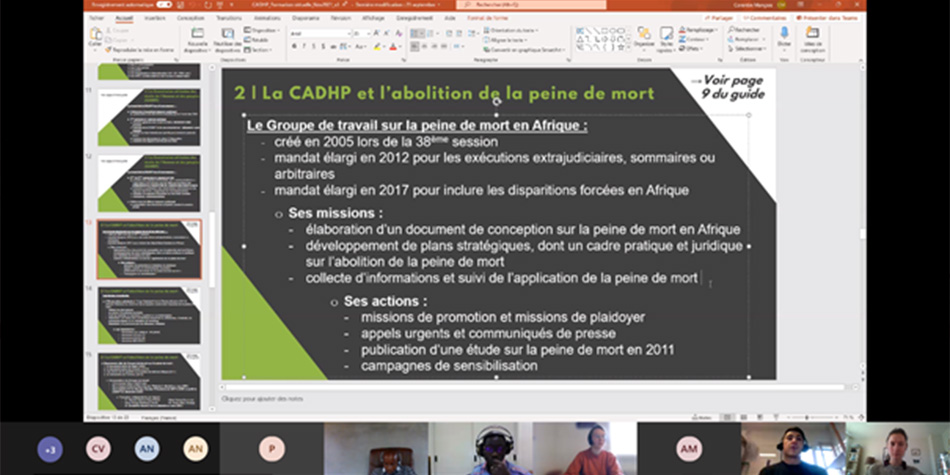
Eager to learn more about the death penalty? Abolitionist civil society around the world answered your call!
World Day
Who Deserves to Die ?
Let’s first begin with a well-made interactive test developed by the Belgian section of Amnesty International. In your opinion, who deserves to die? A test available in French.
The danger of executing innocents is also recalled by the Legal Defense and Assistance Project (LEDAP) in a video entitled Innocent and Sentenced to Die: Wrongful incarceration on Nigeria’s Death row. Giving the floor to innocents wrongfully sentenced to death, LEDAP reminds us that no justice system is ever safe from judicial error.
Other videos published for World Day include the campaign by Second Chances in Singapore and a video by the Amman Center for Human Rights Studies who went out to the streets and asked Jordanians what they had to say about the death penalty.
The Death Penalty and Terrorism
Amnesty International released a report entitled 2016 World Day against the Death Penalty, focusing this year on the death penalty for terrorism-related offences. Observing that at least 20 countries have sentenced people to death or carried out executions for terrorism-related crimes in 2015, Amnesty International draws our attention on several worrisome trends: the violations of international fair trial standards affecting those accused of terrorism, the use of military courts to impose death sentences and the use of the capital punishment for political aims.
The report also stresses that the capital punishment fails to constitute a deterrent punishment. An argument which is endorsed by Nestor Toko, president of the Lawyers Network against the Death Penalty in Cameroon, in a video entitled Death Penalty for Terrorism is no Deterrent.
Parliamentarians for Global Action, together with the World Coalition against the Death Penalty, has launched a factsheet on the death penalty for terrorism, insisting on the ineffectiveness of the death penalty. The factsheet also suggests ways to contribute to the abolition of this inhumane punishment.
Those three contributions underline that death penalty is never an answer to terrorism.
Secrecy and Arbitrariness in Asia and the Middle East
A publication of the FIDH, Going backwards: the death penalty in Southeast Asia, has revealed, despite the secrecy surrounding the use of the death penalty in the region, that Indonesia, Malaysia and Singapore have continued to execute people in 2015. The situation is particularly worrisome in Indonesia, where death penalty is widely enforced for drug-related offenses, and in the Philippines, as President Duterte has announced his will to re-establish the capital punishment. Beyond those cases, FIDH’s reports also addresses the situation in Brunei Darussalam, Burma, Laos, Malaysia, Singapore, Thailand, Vietnam.
A report published by the Palestinian Center for Human Rights (PCHR) displays facts about death penalty in Palestine and PCHR’s position towards it in eight items. It also includes recommendations for decision makers and stresses that “Justice is meant to bring safety and serenity not revenge”.
Unfair trials and ill treatment: the reality of the death penalty in Belarus and the USA
In association with the Viasna Human Rights Center, the FIDH has published a report pointing out the practice of the Death penalty in Belarus, the only remaining country in Europe still condemning to death penalty and carrying out executions. Beyond the cruelty of the capital punishment, the report stresses that torture and ill-treatment are widely spread in Belarus so as to obtain confessions from the suspects, who are systematically denied the right to be assisted by a lawyer. The publication also underlines the suffering of the relatives of the inmates, who are neither informed of the date of the execution nor being authorised to get the body of their loved one back.
In the second part of the report Too Broken to Fix: An In-depth Look at America’s Outlier Death Penalty Counties, the Fair Punishment Project reviews eight US counties characterised by their intense resort to death penalty. The authors underline the unfair character of the death penalty, affecting above all the ones who are deprived the access to representation, who suffer from systemic racial bias and who live in counties ruled by overzealous prosecutors. Against a very well documented background, the report concludes on the persistent danger of convicting innocent people to a definitive and irrevocable punishment.
Categories
Terrorism






